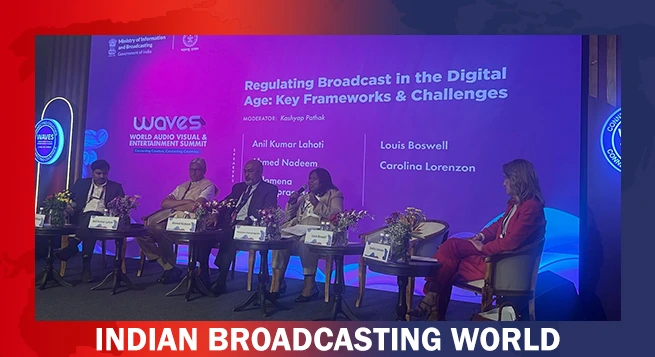Infant school children are increasingly online and given more digital independence by parents, according to Ofcom’s annual study of children’s relationship with the media and online worlds.
The research reveals that around a quarter of 5-7 year-olds (24 percent) now own a smartphone, while three-quarters use a tablet (76 percent).
Compared to a year ago, overall use of social media sites or apps among all 5-7s has increased year-on-year (30 to 38 percent), with WhatsApp (29 to 37 percent), TikTok (25 to 30 percent), Instagram (14 to 22 percent) and Discord (2 to 4 percent) seeing particular growth among this age group, the British communications regulator said in a statement yesterday.
The regulator said that research comes close on the heels of proposed consultation in the coming weeks on a comprehensive set of proposals to ensure children are better protected online.
Additionally, Ofcom announced an additional area of focus for child safety, building on the robust measures set out in our draft illegal harms Codes of Practice.
“Specifically, we are planning an additional consultation later this year on how automated tools, including AI, can be used to proactively detect illegal content and content most harmful to children, including previously undetected child sexual abuse material,” Ofcom said.
Alongside the latest research, Ofcom has also set out how tech firms can design their platforms in a way that promotes and supports their users’ digital literacy.
These best practice principles have been developed with the support and engagement of the academics, platforms and interest groups represented on our external working group, the Ofcom added.
Apart from the findings on kids, Ofcom published research that builds evidence about on-platform interventions – including prompts to encourage people to make an active choice about the content they see.
 Sudhir Chaudhary announces new show for DD News, says “Good content still has a place” at WAVES 2025
Sudhir Chaudhary announces new show for DD News, says “Good content still has a place” at WAVES 2025  India can lead global entertainment revolution: Mukesh Ambani
India can lead global entertainment revolution: Mukesh Ambani  TRAI chief not in favour of separate rules for OTT, legacy b’casters
TRAI chief not in favour of separate rules for OTT, legacy b’casters  Stakeholder alignment media’s big media challenge: BARC Chairman
Stakeholder alignment media’s big media challenge: BARC Chairman  April’s OTT Storm: Top Binge-Worthy Titles Now Streaming on Tata Play Binge Report:
April’s OTT Storm: Top Binge-Worthy Titles Now Streaming on Tata Play Binge Report:  ‘Very Parivarik’ set for a dramatic comeback with S2
‘Very Parivarik’ set for a dramatic comeback with S2  Ajay Devgn brings ‘Amay Patnaik’ to life on Radio with Mirchi
Ajay Devgn brings ‘Amay Patnaik’ to life on Radio with Mirchi  Shemaroo TV rings in five years of entertainment, nostalgia
Shemaroo TV rings in five years of entertainment, nostalgia  DishTV’s Watcho unveils FLIQS, a game-changer for India’s OTT landscape
DishTV’s Watcho unveils FLIQS, a game-changer for India’s OTT landscape 








